The following individuals were elected as members of the ISHHR Council at the 1st Annual General Meeting after the 11th ISHHR Conference in Bogotá, Colombia, in November 2022, which took place on September 15th, 2023. Together, they represent a diverse range of disciplines, expertise, skills and knowledge, that guides the decision-making processes of the organisation.
Gwynyth Overland
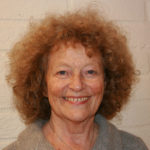 Secretary General, holds a PhD in clinical sociology and the sociology of religion. She worked with refugees in Norway for 30 years, then as special advisor at Southern Norway Regional Trauma Competency Centre (RVTS Sør) until 2019.
Secretary General, holds a PhD in clinical sociology and the sociology of religion. She worked with refugees in Norway for 30 years, then as special advisor at Southern Norway Regional Trauma Competency Centre (RVTS Sør) until 2019.
In addition to books and articles on the meaning of culture for vulnerable populations and refugees’ experience of psychiatric treatment, she has published Post Traumatic Survival: The lessons of Cambodian Resilience (2013) and the anthologies Nordic Work with Traumatised Refugees: Do We Really Care (2014) and Violent Extremism in the 21st Century: International perspectives (2018).
Valeria Markova (Ru)
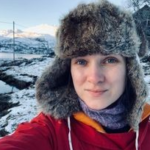
Treasurer, holds a PhD in migration health, and is a psychologist at the Center for Migration Health in Bergen. She helped found the Health Center for Paperless Migrants in Bergen, where she now also volunteers.
.
.
Shaun Nemorin (Aus)
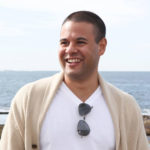
Shaun Némorin is a psychotherapist and clinical supervisor with work over the last 20 years spanning across the United Nations, Government, Research, NGO sectors.
Experienced in complex emergency settings, Shaun has worked globally in Mental Health and Psychosocial Support (MHPSS) programming including the United Nations High Commissioner for Refugees (UNHCR) in operations across Africa and the Asia/Pacific Region.
Shaun has conducted workshops internationally on topics such as vicarious trauma amongst humanitarian practitioners, community based interventions for the recovery of trauma in contexts of mass displacement and clinical supervision for mental health practitioners in emergency settings. His research into these topics has been published in various academic journals.
Shaun holds a Bachelor’s Degree in Psychology, a Masters in Social Work and has further Post Graduate degrees in Peace studies and Refugee Law
Huseyin Emlik (Kurdistan)
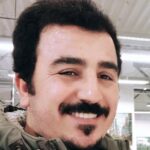
Huseyin is a sociologist/researcher actively involved in research, project development, implementation, and data analysis at the Center for Migration and Health (CMH) in Bergen, Norway. With expertise in social trauma, oral history, gender, poverty, discrimination, and more, his research also delves into political economy, racial division of labor, genocide, and massacre studies.
Since 2015, Huseyin’s research has focused on one-on-one and focus group interviews with refugees, exploring migration experiences, coping strategies for trauma, and adaptation strategies. He examines changes in family and group roles based on gender, along with positive/negative impacts on family dynamics and group solidarity in host countries. Huseyin’s field studies also explore survival strategies, political preferences, and strategic discourses produced by refugees.
Rolf Vårdal (No)
 Rolf has worked in the refugee field for two decades; first as a physiotherapist in the municipality, and in different capacities at RVTS West (Resource Centre on Violence, Traumatic Stress, and Suicide Prevention), and the local centre for the integration of resettled refugees in Bergen, Norway. Rolf now does clinical work at the Centre for Migration Health, also in Bergen.
Rolf has worked in the refugee field for two decades; first as a physiotherapist in the municipality, and in different capacities at RVTS West (Resource Centre on Violence, Traumatic Stress, and Suicide Prevention), and the local centre for the integration of resettled refugees in Bergen, Norway. Rolf now does clinical work at the Centre for Migration Health, also in Bergen.
Rolf teaches students of physiotherapy and medicine at the local university college and university about refugees, global health issues and more specifically about consequences of torture, as well as refugees resettled in the area about health and lifestyle. He is a trained group leader of ICDP (International Child Development Program, minority version), and has ran dialogue-based programs for groups of refugee parents. Furthermore, Rolf continues to facilitate groups of TRT (Teaching Recovery Techniques) for selected groups of refugees.
Rolf is a member of Amnesty International, the Chechen-Norwegian Friendship Association, the local Latin American Group, and other NGOs.
Marit C. Borchgrevink (No)
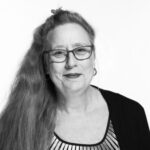 Marit is a child psychologist, has worked with refugees since 1994 as head of the Psychosocial Team for refugees in Northern Norway and now, with refugee health at RVTS Nord. She has contributed actively to ISHHR conferences since 1998.
Marit is a child psychologist, has worked with refugees since 1994 as head of the Psychosocial Team for refugees in Northern Norway and now, with refugee health at RVTS Nord. She has contributed actively to ISHHR conferences since 1998.
.
.
Sofía Colorado Valencia (Co)
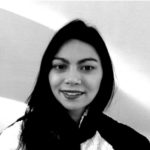
Sofia is a psychologist and family therapist. As a mental health professional, Sofia is committed to advocating for social justice and human rights, with extensive experience supporting refugees, minority groups, and survivors of violence. Sofia has provided training on gender-based violence and has worked with organizations such as Health and Human Rights Info (HHRI) to train helpers who offer support to women affected by violence in conflict-affected areas. She also gives group training inTeaching Recovery Techniques (TRT) for people affected by traumatic experiences. Sofia currently works as a psychologist in the municipality of Oslo and through her private practice.
David Danto, Ph.D., R. Psych. (Ca)
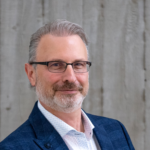
David is Dean, Health and Community Studies at MacEwan University in O-day’min, amiskwaciwâskahikan, Treaty 6 Territory, Edmonton, Alberta, Canada. A Professor in the Department of Public Safety and Justice Studies, he brings administrative, pedagogical, scholarly, and clinical experience to this position.
Dr. Danto was Head of Psychology at the University of Guelph-Humber in Ontario for 12 years. He is an awarded faculty mentor and author. His scholarly and clinical interests focus on health, community, and human rights, with particular emphasis on Indigenous wellness and culture-based approaches to addressing intergenerational trauma in local and global contexts.
He was the founding Chair of the Canadian Psychological Association (CPA) Task Force on Responding to the Truth and Reconciliation Commission Report and the CPA Standing Committee on Reconciliation.
Arnold Djuma Batundi (DRC)
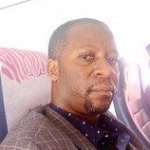
Arnold is a human rights defender committed to the promotion, protection and defense of human rights in the province of North Kivu in the DRC, involved in the fight for human rights from 1994 during the massive influx of Rwandan refugees into the DRC.
1998-2012, he directed several programs within the organization SOPROP, in particular, programs for victims of torture, education in human rights and peace, and the monitoring of human rights violations and advocacy.
2012-2023: coordinates 4 departments within the CVPD (www.cvpd-asbl.org) the Coalition of Volunteers for Peace and Development: 1) Promotion, protection of human rights; 2) Building and consolidating peace; 3) Sustainable development objectives 2030, in particular SDG 8, 7, and 4 (Healing of memories), thanks to the support of the Institute for the Healing of Memories of South Africa.
Domnine Marie LeCoq (Fr)
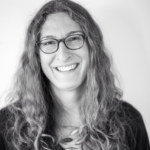 Domnine is a clinical psychologist at the Transcultural Centre at Stavanger University Hospital (SUS) in Norway. She has been working with asylum seekers and refugees for the past decade with special focus on clinical work with children, adolescents and young adults. She has also been working with people victims of sex trafficking.
Domnine is a clinical psychologist at the Transcultural Centre at Stavanger University Hospital (SUS) in Norway. She has been working with asylum seekers and refugees for the past decade with special focus on clinical work with children, adolescents and young adults. She has also been working with people victims of sex trafficking.
.
.
Loes H.M. van Willigen, M.D., Ph.D.
– Honorary President
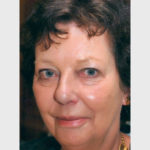 Loes was originally trained as a general practitioner, and became involved in providing health care to refugees in 1982; first as a medical doctor, and later as consecutively the director of the former Refugee Health Care Centre of the former Dutch Ministry of Welfare, Health and Culture, and the Pharos Foundation for Refugee Health Care.
Loes was originally trained as a general practitioner, and became involved in providing health care to refugees in 1982; first as a medical doctor, and later as consecutively the director of the former Refugee Health Care Centre of the former Dutch Ministry of Welfare, Health and Culture, and the Pharos Foundation for Refugee Health Care.
Later she worked as a consultant in the area of migration, health and human rights. She was coordinator of the advisory group on ‘the health situation of refugees and victims of organized violence’, established by WHO/Euro (1988 – 1996), and President of the International Association for the Study of Forced Migration (1999 – 2003). At a national level she was, amongst others, member of the Advisory Committee on Migration Affairs, member of the Board of Defence for Children-NL, and Chairwoman of the Johannes Wier Foundation for Health and Human Rights.
She has written numerous articles, chapters and reports about the (mental) health problems of refugees and victims of organized violence, including children and youngsters, and related issues. Her thesis (1992) concerned the psychosocial problems of refugees and asylum seekers in the Netherlands.
Together with, particularly Latin-American, colleagues she established the International Society for Health and Human Rights.
Becoming a member of the International Society of Health and Human Rights means you, or your organisation, will join a global network of clinicians, practitioners, advocates, researchers, and other likeminded individuals and organisations who are committed to aiding the recovery, rehabilitation, and integration of survivors of human rights violations. You, or your organisation, will receive updates from ISHHR, and also will be given the opportunity to capitalise on special offers and discounts at the next ISHHR Conference or event.
